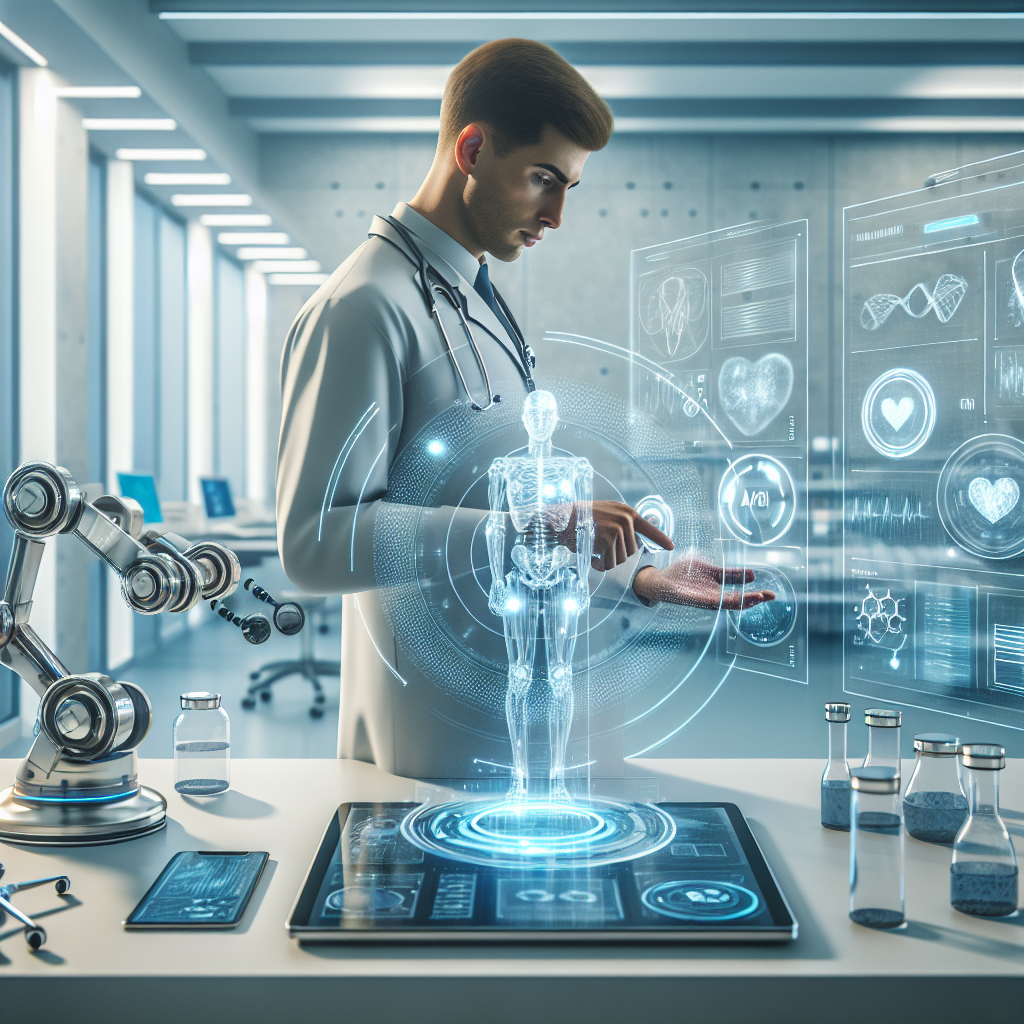Introduction
In recent times, the incorporation of Artificial Intelligence (AI) into the healthcare sector has sparked a transformative change in the way medical professionals diagnose and treat patients. AI diagnostic tools, which leverage machine learning algorithms and extensive data pools, have fundamentally altered the diagnostic landscape, significantly improving accuracy, efficiency, and predictive capabilities. As we explore this new terrain, it is essential to grasp the implications of AI on healthcare professionals and the broader healthcare ecosystem.
The Rise of AI in Diagnosis
The application of AI in medical diagnostics is no longer a distant vision; it is now a tangible reality. Machine learning algorithms can process medical information more rapidly than conventional methods, allowing healthcare providers to make informed decisions more swiftly. Ranging from imaging analysis in radiology to predictive modeling in pathology, AI tools are crafted to enhance and support the expertise of medical practitioners.
Enhancing Accuracy and Efficiency
One of the prominent benefits of AI diagnostic tools is their ability to improve diagnostic accuracy. For example, AI systems can evaluate thousands of medical images in real-time, accurately identifying anomalies like tumors or fractures. This capacity not only mitigates the risk of human error but also ensures prompt detection of conditions, leading to better patient outcomes.
Additionally, AI can optimize workflows in busy medical settings, enabling professionals to concentrate more on patient care rather than administrative duties. By automating routine diagnostic tasks, healthcare providers can save valuable time and focus their attention on more intricate cases that necessitate human intuition and empathy.
Transforming the Role of Medical Professionals
While AI diagnostic tools present various advantages, they also provoke questions about the changing role of healthcare professionals. Rather than superseding human expertise, AI is intended to complement it. Physicians will increasingly become interpreters of AI-generated data, leveraging their clinical judgment to contextualize results within a patient’s unique history and symptoms.
This evolution requires a reevaluation of medical education and training, stressing the importance for future doctors to be adept at AI technologies. Fostering collaboration between human practitioners and AI systems will be crucial to unlocking their full potential.
Addressing Ethical and Practical Challenges
The adoption of AI in diagnostics introduces a range of ethical and practical challenges. Concerns regarding data privacy, algorithmic bias, and accountability are crucial. AI systems must be constructed to safeguard patient confidentiality while ensuring that models are developed using diverse datasets to avoid biases that could lead to misdiagnoses in various demographic groups.
Additionally, there is an urgent need for clear regulatory guidelines governing AI usage in healthcare. Transparency regarding the operation of AI tools, the data they utilize, and the decisions they affect is vital for fostering trust among healthcare providers and patients.
The Future of AI in Medical Diagnostics
Looking forward, the outlook for AI in medical diagnostics seems optimistic. Continuous advancements in AI technology are expected to lead to increasingly sophisticated tools capable of predicting diseases and tailoring treatment plans. Partnerships among technology firms, healthcare providers, and research institutions will be instrumental in refining these tools and embedding them into clinical workflows.
Furthermore, as AI systems progress, ongoing monitoring and adaptation will be crucial. Medical professionals must remain informed about these innovations, cultivating a culture of lifelong learning that incorporates emerging technologies into their practices.
Conclusion
AI diagnostic tools are redefining the healthcare landscape, presenting exceptional opportunities to improve diagnostic precision and efficiency. While they promise to enhance the abilities of medical professionals, they also pose challenges that require thoughtful consideration. Embracing AI as an ally in patient care, rather than as a substitute, will be vital as the healthcare sector maneuvers through the complexities of this technological evolution. The future holds great promise for enhanced healthcare outcomes, provided that ethical standards and professional responsibilities steer the integration of AI in medicine.

